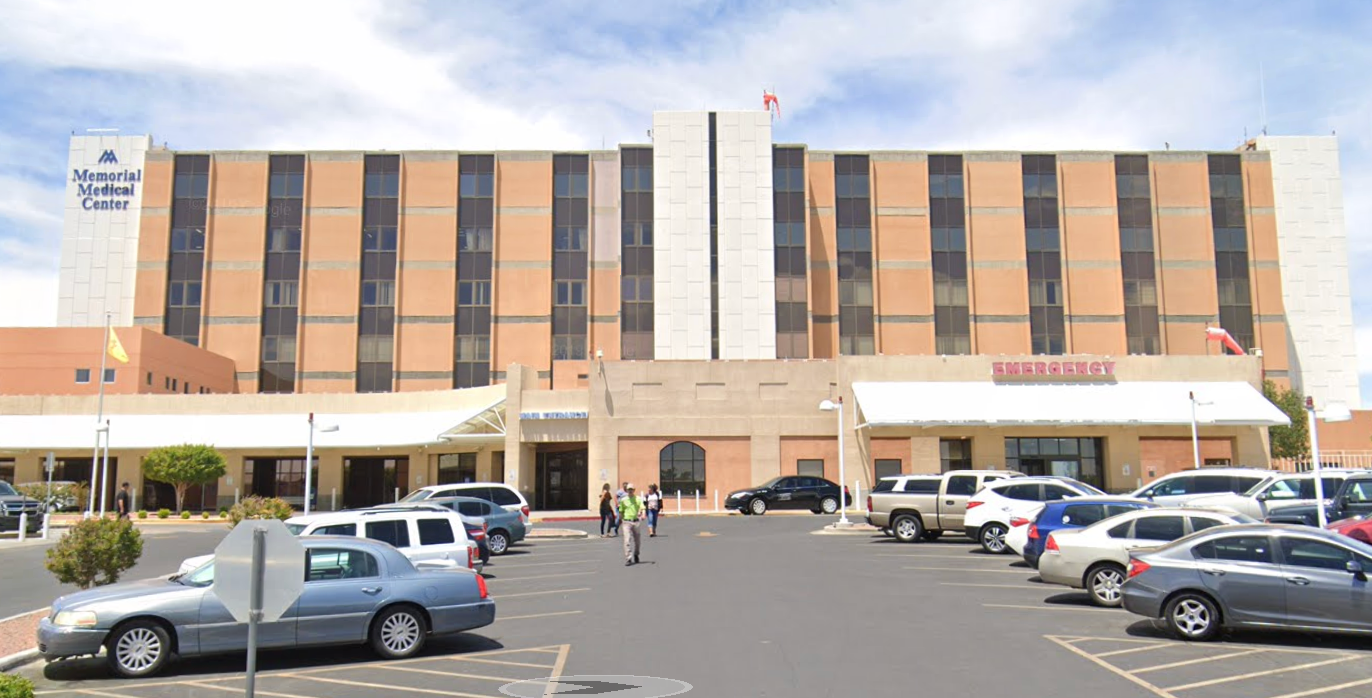Cancer patients say they were turned away from New Mexico hospital
‘They didn’t even try to make it work,’ one oncology patient said of Memorial Medical Center

Your support helps us to tell the story
From reproductive rights to climate change to Big Tech, The Independent is on the ground when the story is developing. Whether it's investigating the financials of Elon Musk's pro-Trump PAC or producing our latest documentary, 'The A Word', which shines a light on the American women fighting for reproductive rights, we know how important it is to parse out the facts from the messaging.
At such a critical moment in US history, we need reporters on the ground. Your donation allows us to keep sending journalists to speak to both sides of the story.
The Independent is trusted by Americans across the entire political spectrum. And unlike many other quality news outlets, we choose not to lock Americans out of our reporting and analysis with paywalls. We believe quality journalism should be available to everyone, paid for by those who can afford it.
Your support makes all the difference.Several oncology patients say they were turned away from a hospital in rural New Mexico, where cancer centers are scarce, according to a new investigation.
Twelve patients seeking cancer treatment and seven current and former physicians said that Memorial Medical Center in Las Cruces has repeatedly denied insured and non-insured cancer patients — or demanded they pay upfront, according to NBC News NOW’s Top Story with Tom Llamas.
Barbara Quarrell, who was diagnosed with cancer in 2022, told the outlet that Memorial would not take her $800-a-month insurance plan. “They didn’t even try to make it work,” Ms Quarrell told NBC News. “What happened to being humane and taking care of each other?”
Another patient, Veronica Hernandez, told NBC News she attempted to get treatment for breast cancer from the hospital several times in 2019 but was routinely denied because she was uninsured.
New Mexico law requires hospitals to give care to “those unable to pay the full cost of healthcare services rendered to them” and must accept “every indigent patient” who seeks treatment, NBC News reports. An indigent patient is defined by New Mexico as someone who is low-income and unable to pay for services.

Nancy Skinner, a Las Cruces resident, described a similar experience to NBC News. After receiving great oncology care at an Albuquerque hospital, she told the outlet she wanted to receive chemotherapy treatment closer to home at Memorial.
To pay for the treatment, she enrolled in Medicare Part B — but told NBC News the hospital refused to treat her until their system said her application went through. A Medicare Part B application can take up to three months to be processed by the Social Security Administration.
“I don’t know who’s making these decisions but they’re not looking out for our best interests,” Skinner told the outlet. “I spent four months begging them, but they didn’t seem to care.”
Meanwhile, Laura Thomas, chief financial officer for Memorial, told NBC News that “many” of the assertions made by patients about the hospital’s conduct “are factually inaccurate.” Thomas said the hospital does not turn away patients.
Las Cruces is a rural area in New Mexico, just on the edge of the Chihuahuan Desert. Oncology patients in Las Cruces and rural areas throughout the US face structural barriers to cancer care.
Limited providers, long travel times and low recruitment to clinical trials all negatively impact rural oncology patients — and rural counties continue to have high rates of cancer mortality, according to a 2020 article in the peer-reviewed journal JCO Oncology Practice.
To mitigate these impacts, researchers say, institutions must assist with financial burdens of care, close travel gaps, ensure clinical trial participation is more open and increase community partnerships to address disparities.
Join our commenting forum
Join thought-provoking conversations, follow other Independent readers and see their replies
Comments